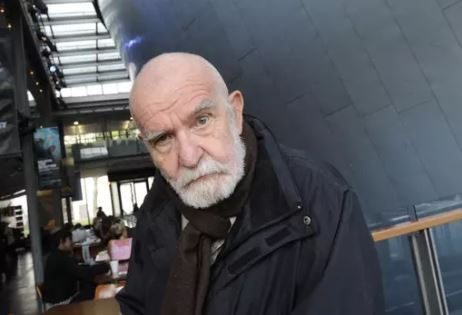Athol Fugard, the celebrated South African playwright renowned for his anti-apartheid works, passed away at the age of 92. His dramatic oeuvre includes seminal plays such as “Blood Knot”, “Sizwe Banzi Is Dead”, and “Master Harold...and the Boys”, which poignantly explored the ramifications of apartheid on both black and white South Africans. Fugard's commitment to portraying the complexities of human relationships against a backdrop of racial injustice established him as a vital voice in resistance literature, earning him recognition as the "conscience of South Africa".
Over coffee in the mornings I’d sit with Athol and we’d use an app on his phone to identify the calls of all the birds in the garden. Then he might tell me a story from his life – the awe he felt when he asked Yvonne Bryceland to smash a chair to bits during rehearsals for Antigone and she proceeded to do so for a full 30 minutes; the journey he made by sea at 18 from Cairo to Japan, when an illiterate Somalian sailor used to watch him every night as he wrote a novel by hand, sitting on a deck hatch; and the way that sailor never spoke to him again when he finished the novel, decided it was terrible, and threw it in the sea.
For decades he was considered subversive by the government; at times productions of his work, with their integrated casts, were considered illegal, and his co-workers in the theater were jailed. In 1967, after his early play “The Blood Knot” appeared on British television, his passport was revoked, so that for several years he could not leave the country.
He eventually spent many years abroad, including in the United States — he worked on productions of his plays at Yale and taught at the University of California, San Diego — yet he could never let himself leave South Africa for good. Even before apartheid was officially revoked in 1994, he maintained a home near Port Elizabeth, the city where he grew up, on the country’s southeastern coast.
Fugard said both his mother and the work of creating art itself forced him to be empathetic, to understand others.
Despite facing significant challenges including censorship and exile, Fugard continued to create art that resonated deeply with audiences worldwide. He believed that his career would conclude with apartheid's end; however, he remained devoted to narrating South African stories long after its abolition . His intimate portrayals often featured small casts that allowed for profound emotional engagement, revolutionizing perceptions of theatrical significance within both national and international contexts .
Read more
Champions League : Liverpool vs PSG: Predicted lineup, predictions and live streaming Inter vs Feyenoord: Preview, live broadcast and lineupsSarah H
Also on site :
- North Dakota is the 11th US state with a measles outbreak
- Fighter jet crashes into sea following landing mishap on USS Harry S. Truman
- Webb Telescope Sheds Light on Enigmatic Exoplanets

